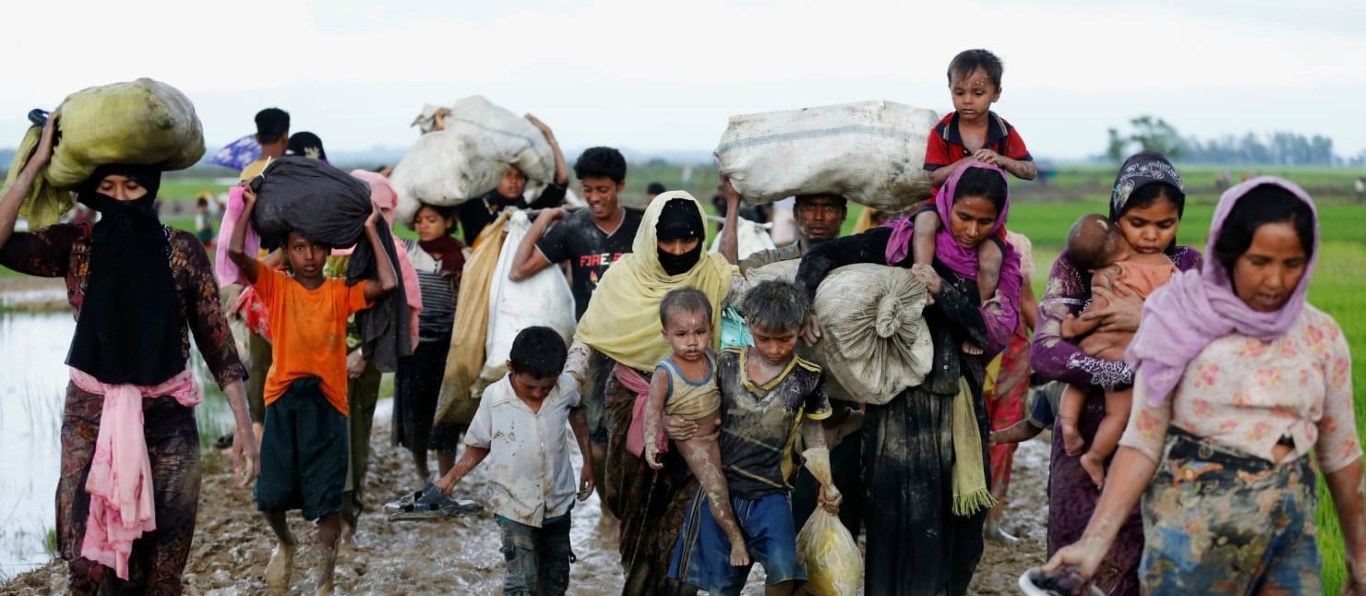No country for Rohingya
September 5, 2017 | Expert Insights

In the span of just 24 hours, 35,000 Rohingya have crossed into Bangladesh from Myanmar.
The UN has announced that the number of refugees needing basic food and water has dramatically surged in the past week.
Background
The Rohingya are an ethnic Muslim minority group from Myanmar’s western Rakhine state. Their origin can be traced back to the 15th century, when thousands settled in Myanmar from Arakan Kingdom. Practicing a variation of Sunni Islam, there are reportedly one million Rohingya in Myanmar. The government of Myanmar has however, refused to recognize them as one of its ethnic groups. They do not get legal protection from the government. The processes for them to get a citizenship is also incredibly hard and often impossible.
The government considers them illegal refugees from Bangladesh and they aren’t allowed to vote. However, the Bangladeshi government considers them Burmese, effectively rendering them stateless. Given their persecution, thousands have fled the region in boats. Due to violent riots, since 2012, over 110,000 Rohingya left Myanmar and headed to countries like Thailand and Malaysia. The number of refugees increased exponentially in 2015. Thein Sein, the Burmese President from 2011 to 2016 did little to offer relief to Rohingya.
A UN report has said that the treatment of Rohingya was tantamount to ethnic cleansing. Researchers from the International State Crime Initiative (ISCI), published a report citing compelling evidence of mass annihilation and genocide. Personal accounts by refugees paint horrific tale of rape, pillaging and violence.
Analysis
Fresh bout of violence has erupted in Myanmar since August 25th, 2017. Aid agencies have reported that at least 123,000 Rohingya have fled as a direct result of it. Eye witness accounts paint a picture of violent mass killing in the region including that of women and children.
Countries like India and Bangladesh have noted that they may have turn the Rohingya Muslims away from their borders. India has said that it is considering deporting the 40,000 Rohingya Muslim refugees in the country. Indian Prime Minister is on an official visit to Myanmar, however, it is unclear whether he will broach this issue.
Rohingya refugees have said that it is the nation’s military that is shooting at them. However, Myanmar forces have noted that they are only attacking Rohingya militants, who in turn have attacked civilians in the region.
Reuters has quoted a refugee, Salim Ullah as noting, “We fled to a hill when the shooting started. The army set fire to houses. We got on the boat at daybreak. I came with my mother, wife and two children. There were 40 people on a boat, including 25 women."
Nations and leaders across the world have begun urging Myanmar’s de facto leader, Aung San Suu Kyi to address the situation. Indonesian Foreign Minister Retno Marsudi has been sent to Myanmar to broker peace and provide humanitarian aid to the persecuted Rohingya Muslims.
Vatican has also announced that Pope Francis will be visiting the region later this year.
UN Secretary-General Antonio Guterres has spoken about the Rohingya crisis and has condemned the actions of the government. He asked the government to stop the military action on the people noting, “I call on the Myanmar authorities to suspend military action, end the violence, uphold the rule of law and recognize the right of return of all those who have had to leave the country.”
Assessment
Our assessment is that the Rohingya Muslims have been rendered stateless and are currently protected by neither law nor any specific government. It will be up to the international community to come together to save this group. We strongly feel that governments in this region have a moral responsibility to protect the Rohingya Muslims irrespective of their background. There are lessons to be learnt from the way Germany handled a similar issue in the recent past. We strongly feel that organizations such as UN, ASEAN, SAARC etc. must quickly come together and forcefully prevail on Myanmar not to further risk of the Rohingyas who have been living in the regions for centuries.








Comments